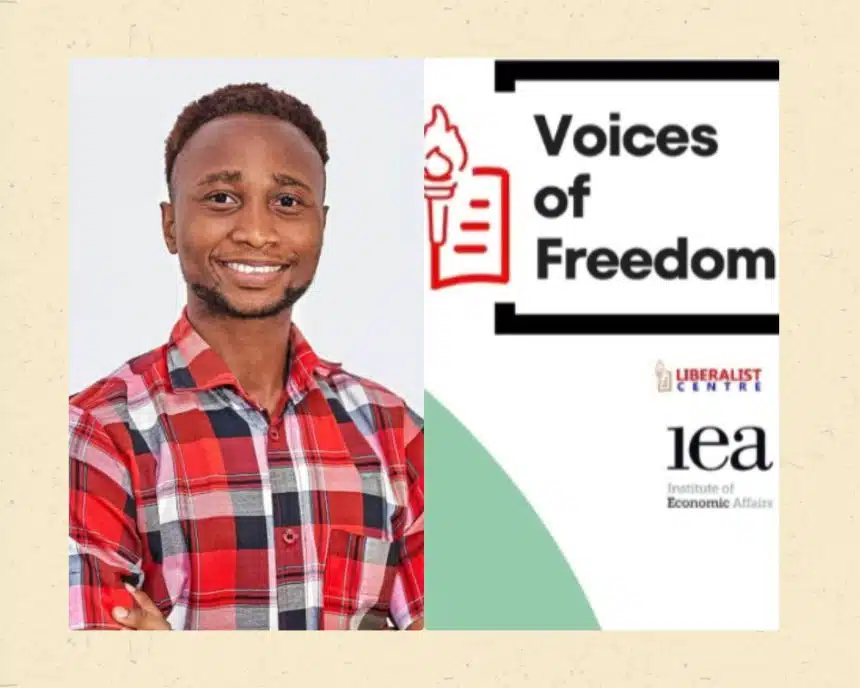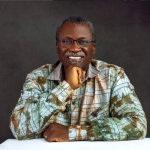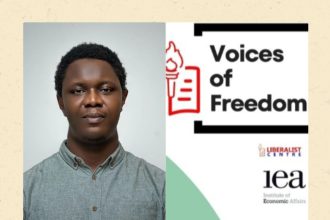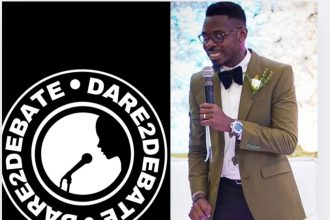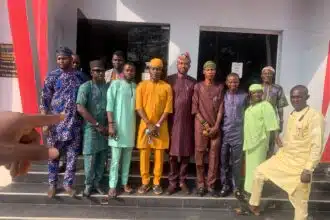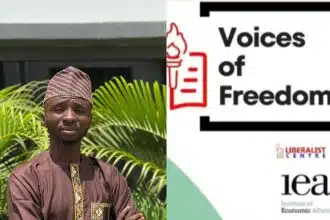On this week’s edition of Voice of Freedom, a special segment of General Issues with the General aired on Adamimogo 105.1 FM Ibadan, researcher associate at fact-checking platform DUBAWA, Cole Praise, shed light on the subtle but powerful ways propaganda thrives, even in free societies.
The program is supported by the Liberalist Centre with funding from the Institute of Economic Affairs (IEA) and Atlas Network.
In a candid conversation, Cole Praise explained how governments, institutions, and individuals exploit social media to manipulate opinions and spread propaganda. “The most viral and common tool is social media,” he said. “People post things online without verifying them, and because information spreads so quickly, many simply believe what they see without questioning its source.”
Why Free Societies Still Fall for Propaganda
The researcher noted that even in societies that pride themselves on freedom of thought and access to information, manipulation remains a serious threat. “People think they can self-determine, that they are immune to propaganda. But that’s not true,” he said.
He pointed to the COVID-19 pandemic as a clear example, when unverified treatments, from drinking salt water to other baseless cures, circulated widely on WhatsApp and Facebook. “Once people see those things, they don’t bother to verify or cross-check. They just share. That is why our digital spaces are flooded with misinformation,” Praise explained.
According to him, the problem lies in what he called an “information deficiency” among many social media users. “There is a form of illiteracy online, people don’t stop to ask, Is this true? Where did it come from? They just believe it because it went viral.”
Persuasion vs. Manipulation
A key part of the discussion focused on distinguishing persuasion, a legitimate democratic practice, from manipulation, which undermines free choice.
“Persuasion involves someone trying to convince you with some element of truth,” Praise explained, citing political campaigns as an example. “A party can say, ‘Vote for our candidate because he has a record of good governance.’ That’s persuasion. But manipulation is different. It comes with lies, altered images, twisted narratives, or false claims used to discredit the opposition.”
He also stressed that while persuasion can strengthen democracy by giving citizens informed choices, manipulation corrodes trust and misleads voters. “In politics and economics, both play big roles. The danger is when manipulation overwhelms persuasion and people no longer know what to believe,” he said.
The Fight for Media Literacy
The Voice of Freedom series, now running weekly, is designed to equip citizens with the skills to resist propaganda and strengthen democratic values through critical thinking. By highlighting the difference between genuine information and deceptive content, the program underscores the importance of media literacy in Nigeria’s civic space.
As Praise noted, fact-checking organizations like DUBAWA play a crucial role in verifying claims, but the responsibility ultimately lies with citizens to question, analyze, and resist manipulation. “The freedom we think we have is only real if we can protect ourselves from lies. Otherwise, it’s an illusion,” he warned.


